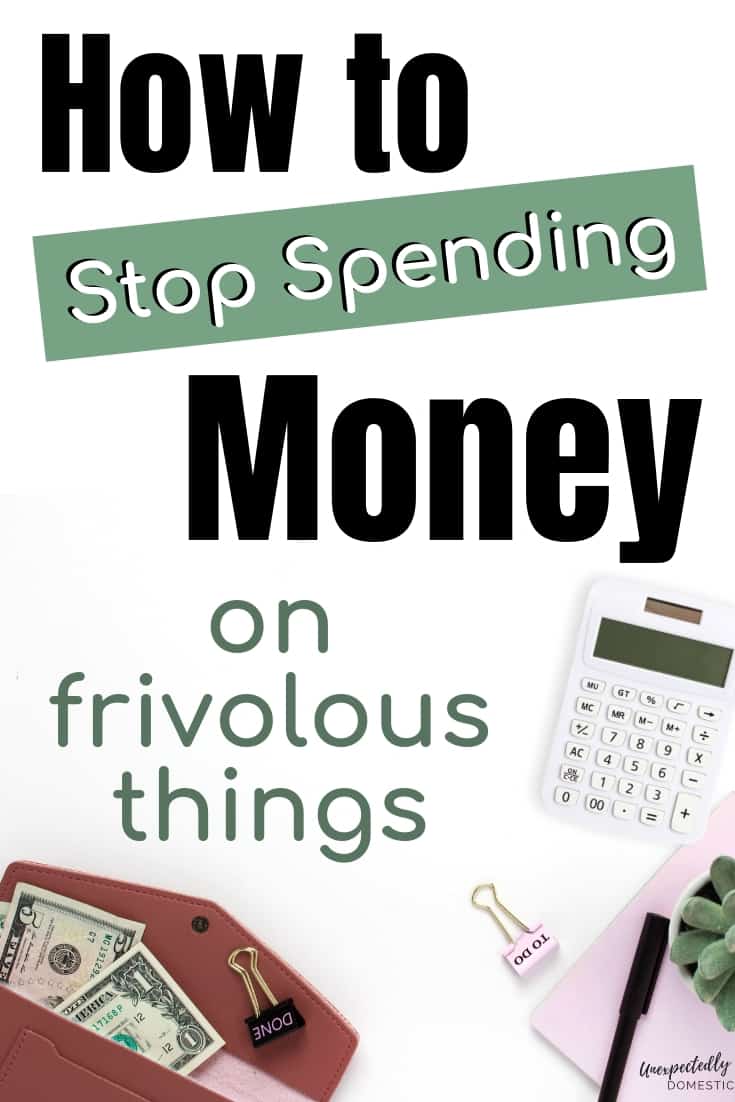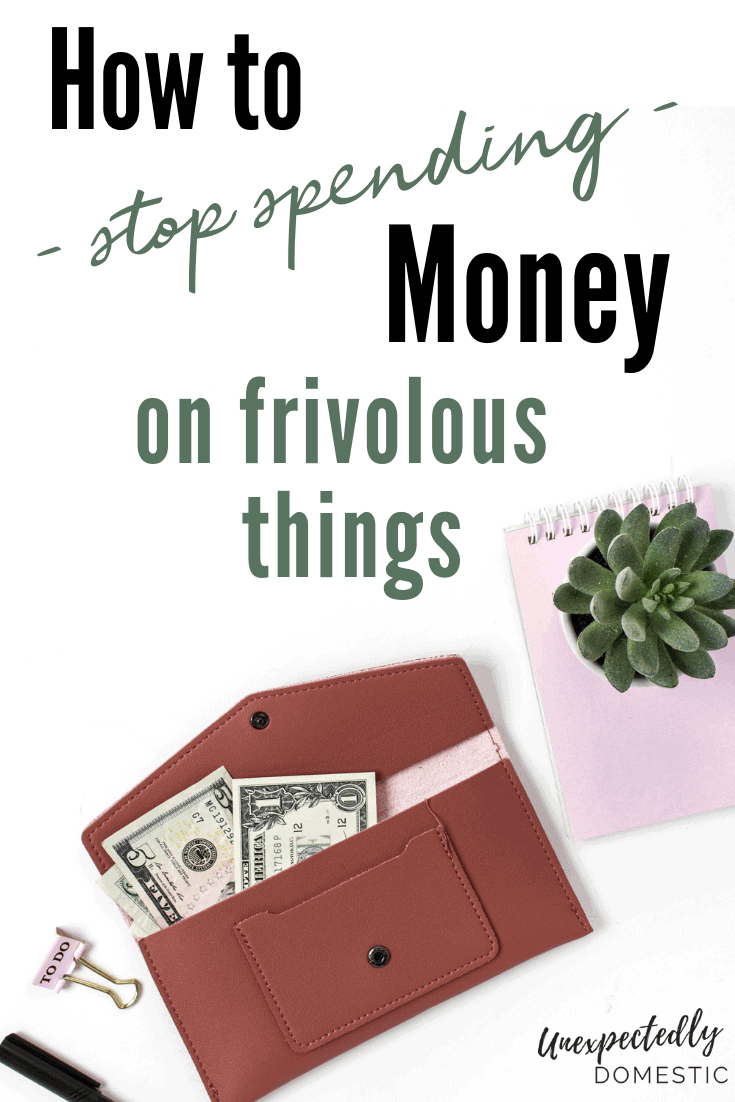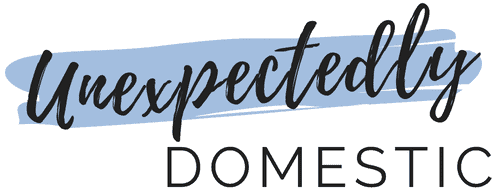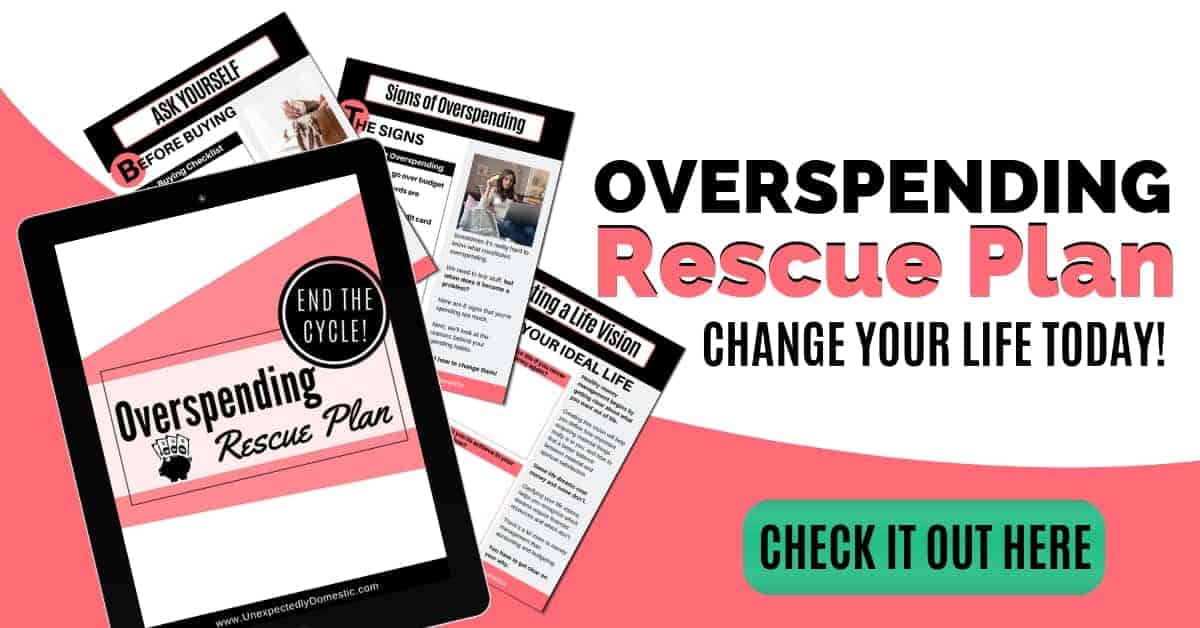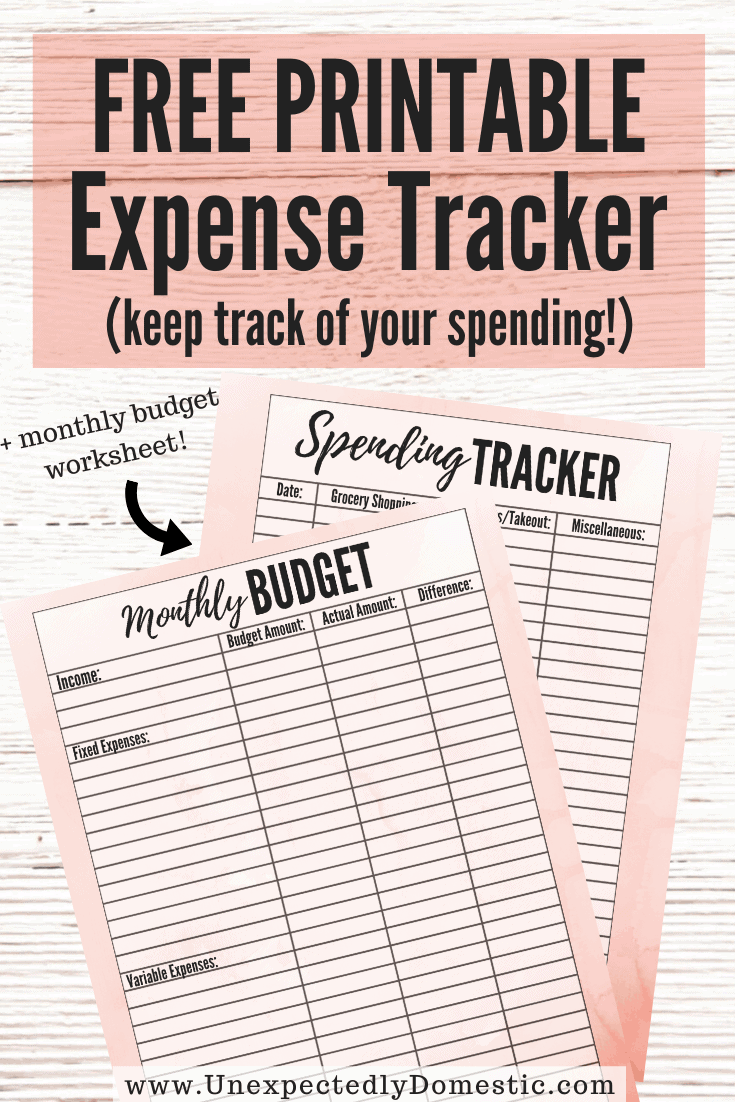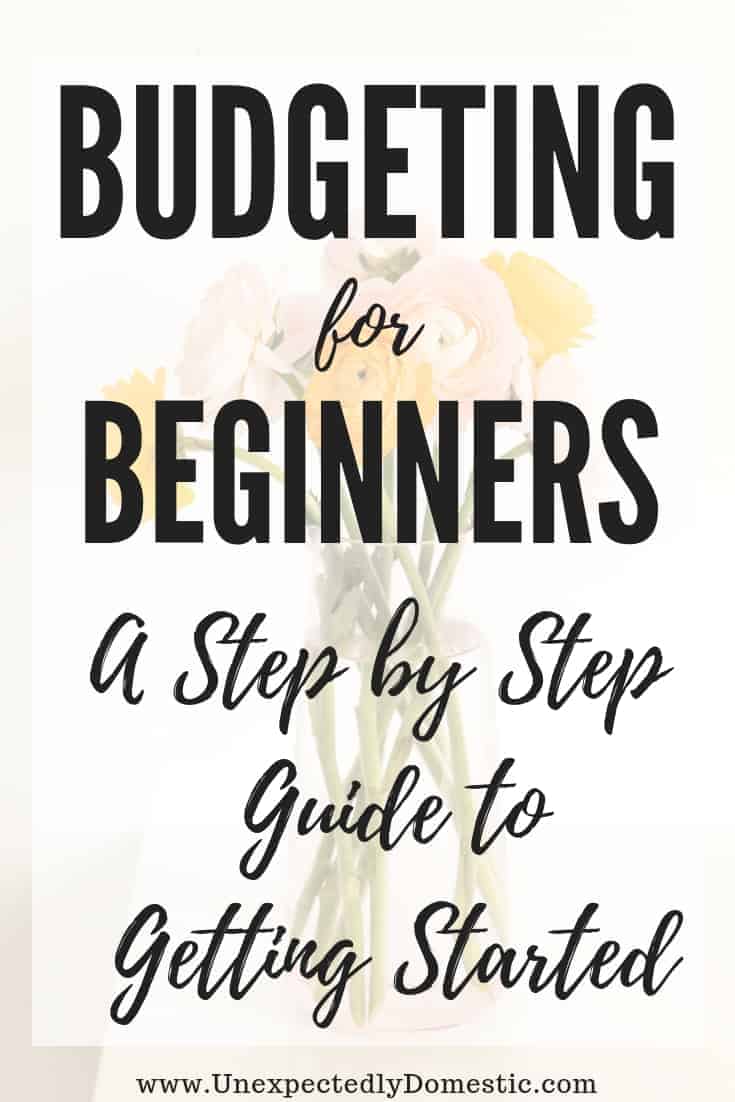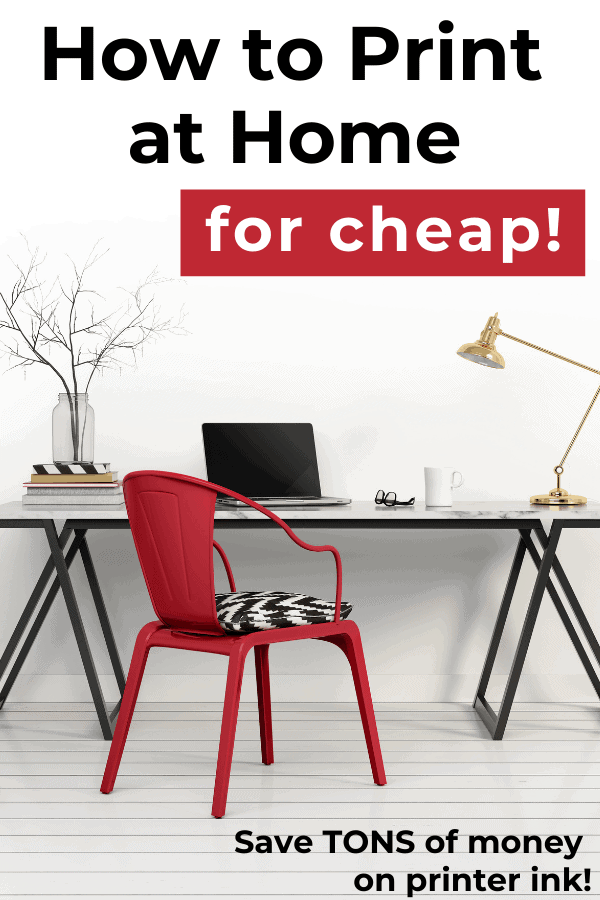7 Super Helpful Questions to Ask Yourself Before Buying Something
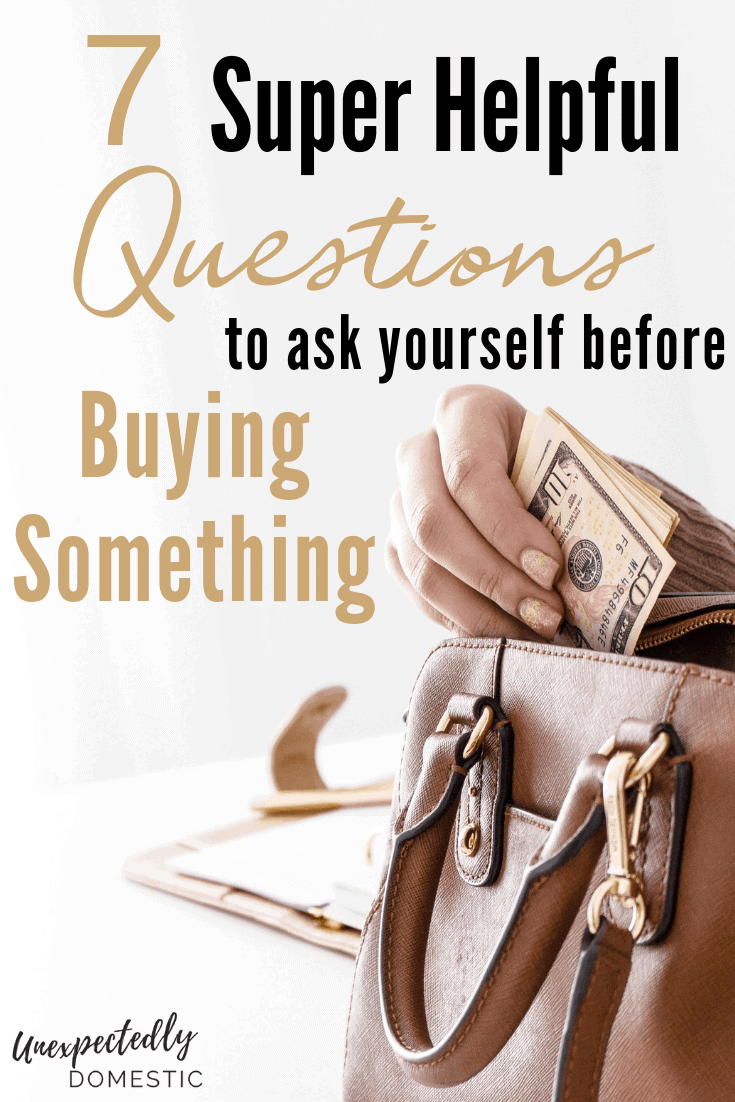
Sometimes the urge to buy something seems almost overwhelming, doesn’t it? You lose all logical thinking, and can’t help but believe that you absolutely need that item in your life right now.
Unfortunately, that all too often leads to a home filled with too much stuff, bills you can’t pay, or a scrawny little savings account.
If you wish you could stop spending money on unnecessary things, here are 7 questions to ask yourself before buying something.
These quick ‘buying questions’ will help you stop and think before making a purchase. And resist spending money that could be better used.
Let’s take a look at the best questions to ask yourself while shopping!
Note: This post is a bite-sized excerpt from the Overspending Rescue Plan. If you’re interested in a more in-depth look at changing your spending habits, check out the Overspending Rescue Plan.
Helpful Questions to Ask Yourself Before Buying Something
1. Can I pay for it comfortably?
The first thing you need to do before you decide on a purchase is to consider where the money is going to come from.
Paying for it comfortably means that you have the extra money in your checking account to buy that item.
You don’t have to take a loan, use a credit card, or withhold payment on a bill to make the purchase.
If you have a budget, did you account for this money beforehand?
Related reading:
- Budgeting for Beginners: A Step by Step Guide for Getting Started
- Sticking to a Budget: 15 Budgeting Tips for Beginners
2. Do I have a place for it?
If spending money doesn’t bother you, maybe the building clutter in your home does.
Be sure you know exactly where you’ll keep this new purchase. If it’s not quickly obvious that you have a good place for it, it’s probably best not to bring it home.
- Decluttering Questions to Ask Yourself Instead of ‘Does This Spark Joy’
- Declutter Your Home Checklist: 135 Things to Get Rid of to Organize Your Home Fast
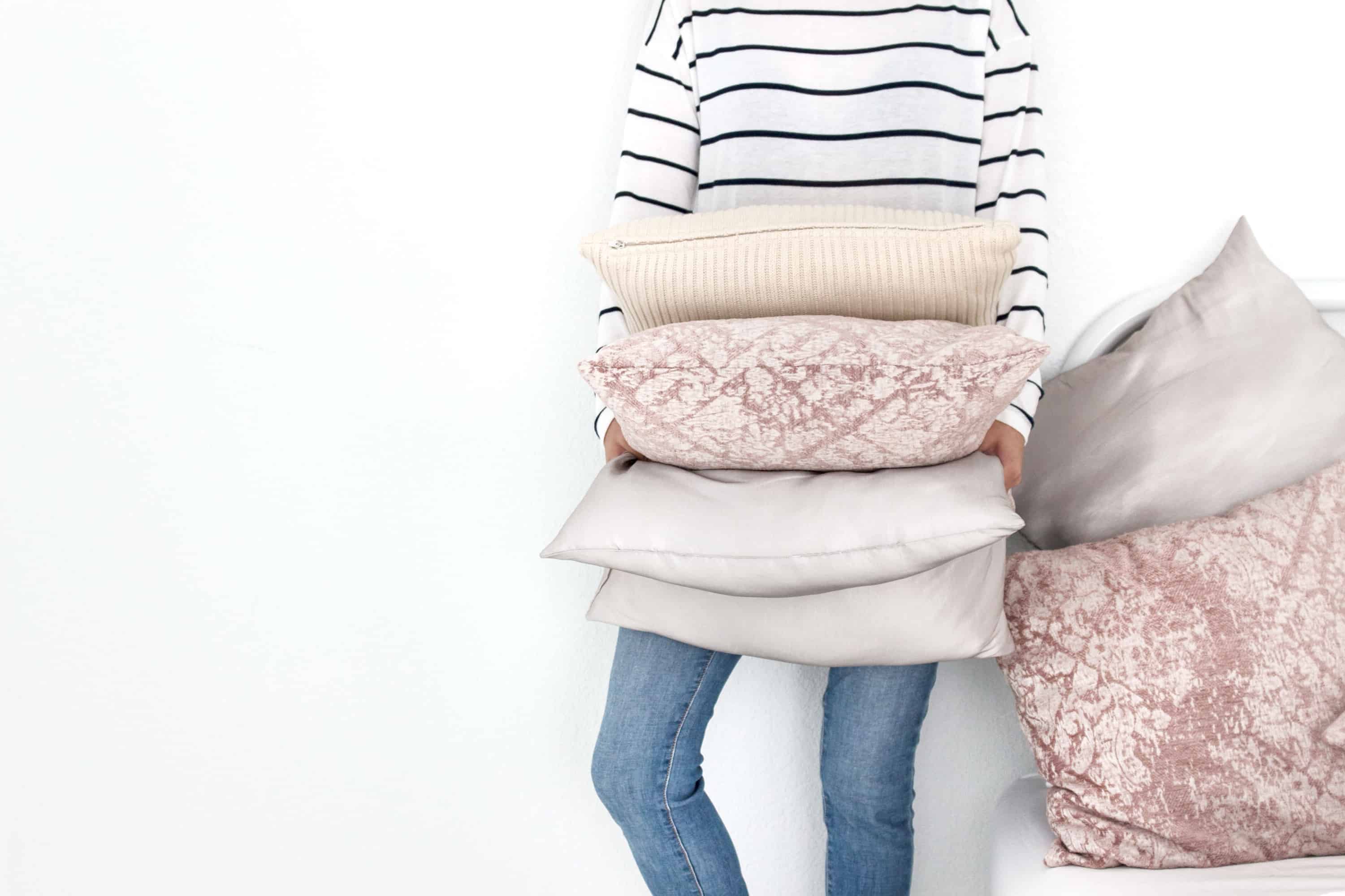
3. Have I thought of buying this before now?
Sometimes we come across something at a store (or see someone else with it), and instantly assume that we need it.
If you’ve never thought of purchasing it before, most likely owning it won’t improve your life in any real way.
4. How long will I use it?
If you won’t get a lot of use out of an item, it’s just not worth spending money on it.
You might wear a black sweater 100 times, but that won’t be true of that one manicure.
This is such a great question to ask yourself before buying food and drinks too. Yes, you need to eat, but you don’t need to fancy or expensive food.
Every $5 coffee or $8 cocktail adds up tremendously over the years.
Related: Where does my money go? 15 Spending Leaks that are Destroying Your Budget
5. How many hours do I have to work to pay for it?
If you really want stop yourself from spending money, translate that into hours at your job.
Is that one dinner out really worth the 2-3 hours of work you had to do to pay for it?
Maybe you would have been just as happy with something much cheaper.
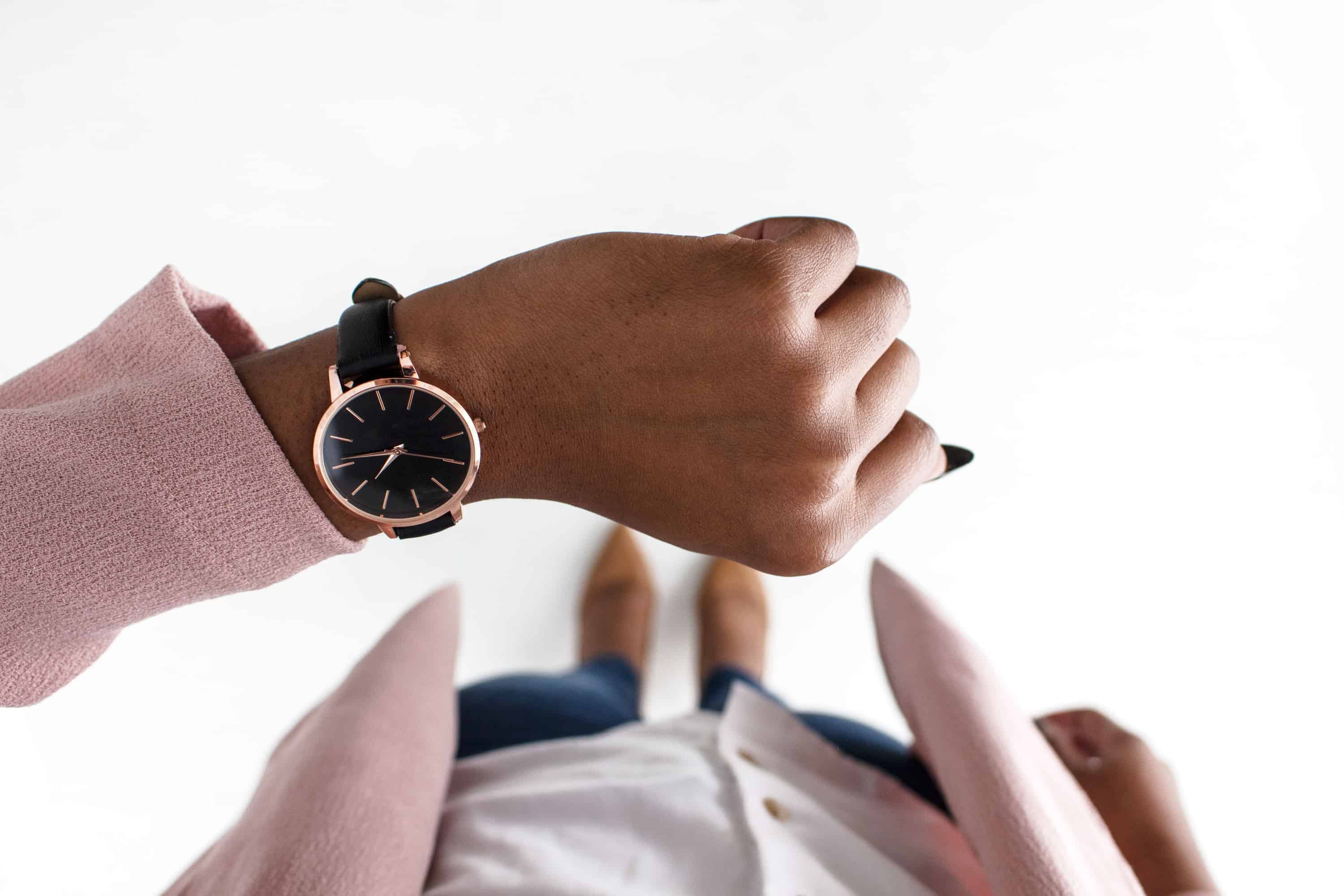
6. Do I already have something that will serve the same purpose?
Take a minute to think about what you already own, and if one of those things will work just as well.
Or maybe you can borrow the item from someone, or buy it gently used instead of brand new.
7. Can I return it if it doesn’t work out?
Sometimes you think you’ll use or love something, but you just don’t.
If the item can’t easily be returned for a full refund, you might not want to shell out your hard-earned money for it.
Of course, you shouldn’t go around buying any ol’ thing just because you can return it. Make sure you’ll actually take it back if the need arises.
More tips to curb overspending
Add it to your wish list
If you really want something, but can’t justify buying it at the moment, start a wish list.
That way, when someone asks you what you want for your birthday or Christmas, you’ll have some ideas at the ready!
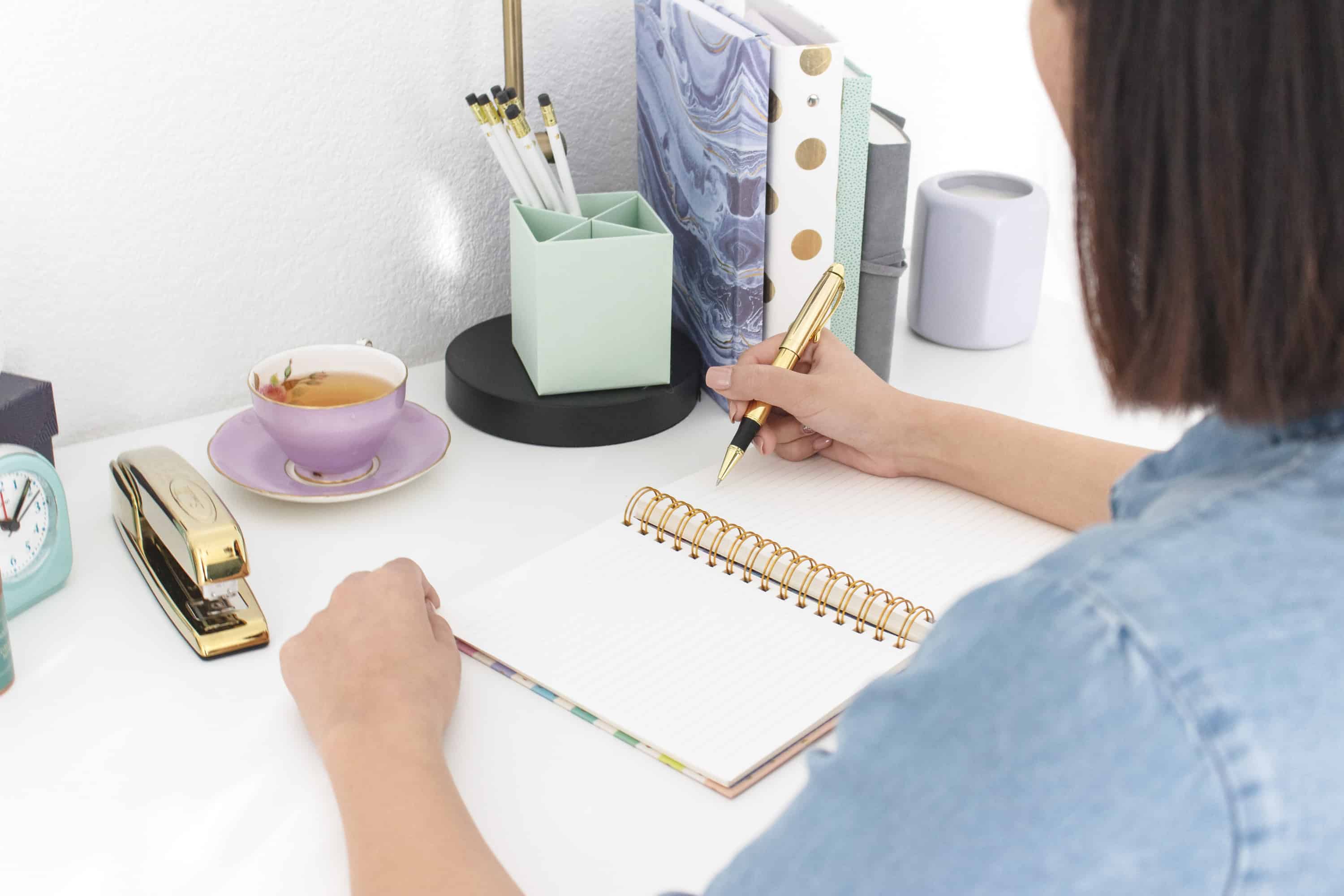
Think about what you’ll do with the money instead
Maybe you decided not to make the purchase because you’re on a debt payoff journey, or saving for a vacation.
Remind yourself of the positive impact the money you saved will have on your life.
Always try to align your spending with your priorities and goals.
Creating a life vision for yourself (and how it applies to spending money) is something I describe more in detail in the Overspending Rescue Plan.
Don’t shop just for fun
If your Saturday afternoons are spent walking around stores (or your evenings are filled with online shopping), know that you’re making it very hard on yourself.
People trying to lose weight don’t hang out in donut shops.
Knowing what triggers your spending will go a long way in helping you resist temptation.
Leave your credit card at home
Or better yet, hide it from yourself completely. Erase your stored credit card numbers from your online shopping carts too.
It’s been proven that handing over cash is psychologically more difficult than swiping a card. It really feels like you’re parting with some precious.
Consider using cash instead of plastic!
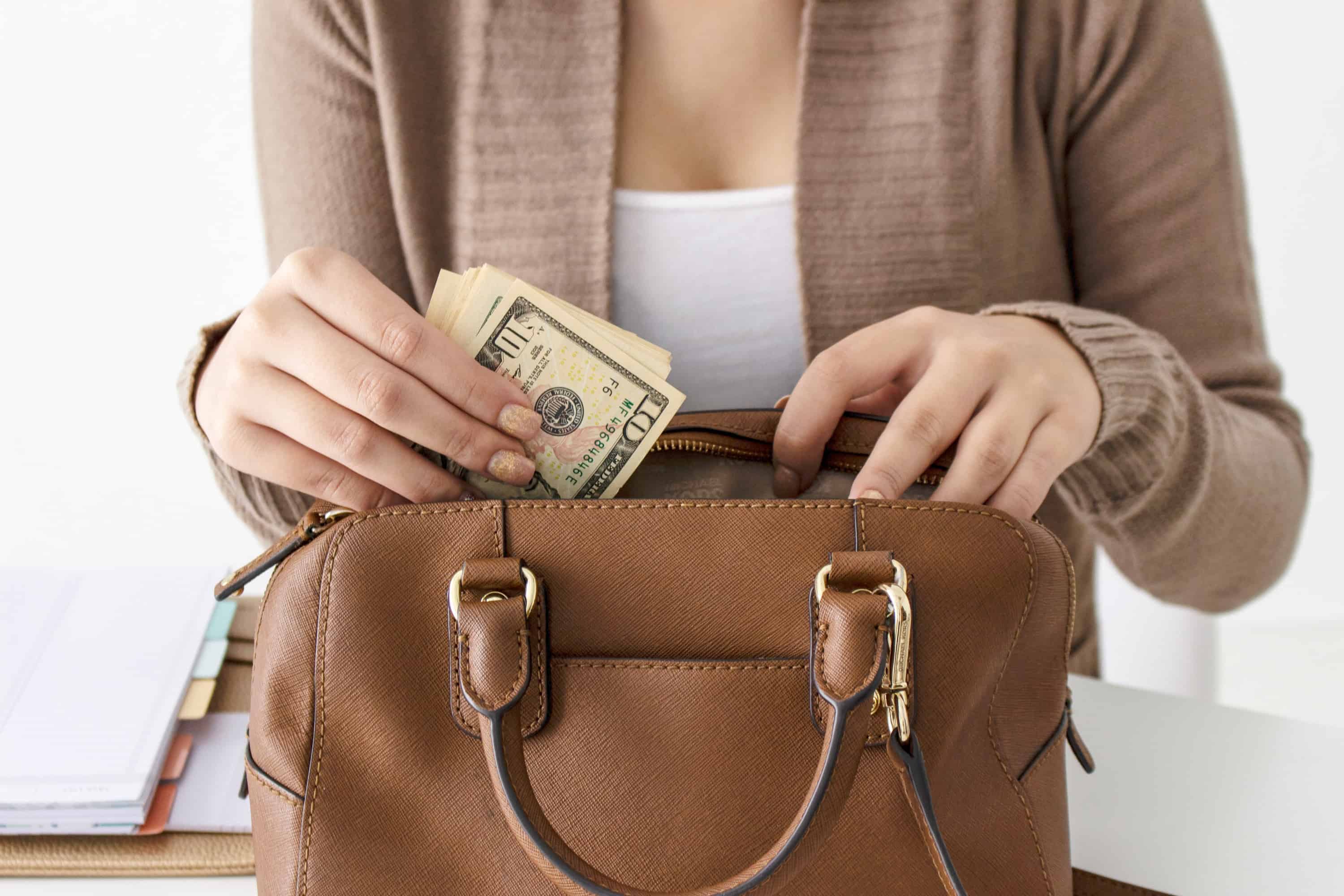
Keep a spending tracker
Just like people trying to slim down keep a log of what they eat, keeping track of your spending will help keep you accountable.
The sheer act of writing things down keeps you mindful of your actions. And seeing how much each little purchase adds up to can be quite shocking.
I offer a spending tracker and budget template in the Freebie Vault. Sign up below to get access to them, plus tons of other super useful printables!
In conclusion
I hope this post gave you some ideas for how to stop spending money on unnecessary things.
By asking yourself these simple questions before buying something, it will make you pause and think through your purchase a little bit more.
Being more mindful of your spending will keep your bank account fuller, your credit card balance lower, and your home less clutter-y!
You May Also Like:
- 12 Things Frugal People Don’t Do
- 10 Money Myths That Are Keeping You Broke
- 10 Things to Do to Finally Get Control of Your Finances
P.S. Whether you’re a daily overspender, go on occasional shopping binges, or are a ‘collector,’ the Overspending Rescue Plan will help you go from reckless spender to organized money manager. Change the course of your life today!
